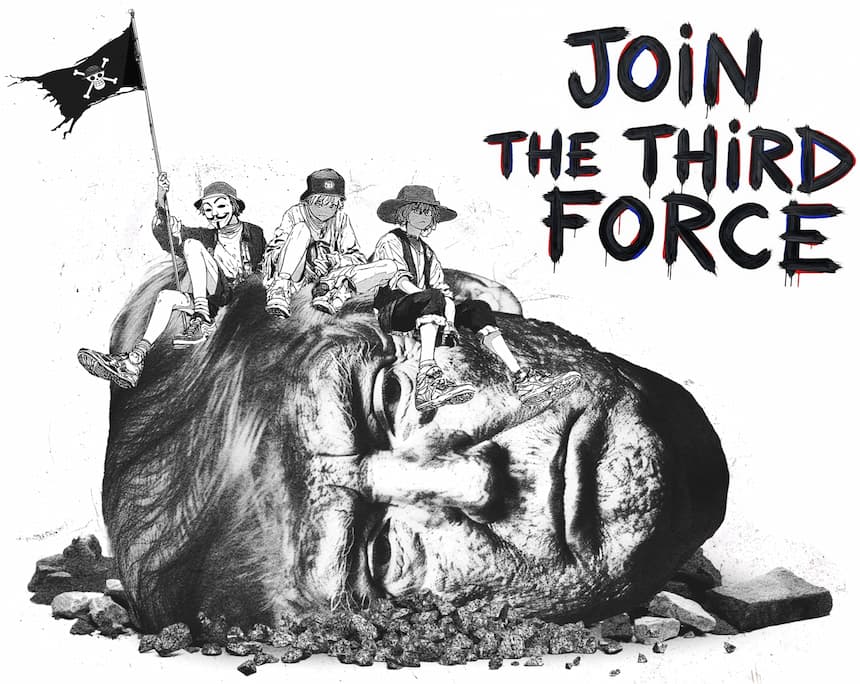Feeling depressed?
Five good spanks will perk you up
If we can hit 1 trillion spanks, we'll bury MAGA in the midterms and turn the national vibe against Trump.


Here's one for . . .




Our editor in chief Kalle Lasn sat down with Daniel Pinchbeck to talk about the big ideas from Manifesto for World Revolution, the history of Adbusters, BUMs, Gen Z uprisings . . . how to save the world . . . and how to wobble.
Check it out. Share widely. Grab a copy of Manifesto.


Swear off clocks.
Instead, tune in to the rhythms of the turning world. Locate yourself in space and time by the feeling you get when you look up at the sky, by the sound of birdsong in the morning. And, later in the day, by the mood of the people around you.
Then slow down. Whenever you're even a little overextended, insert a sacred pause, a micro-Sabbath, right there in your day.
Then declutter. Get rid of your car, your dishwasher, your air conditioner, your electric can opener. Not all at once: take your time. Do it bit by bit when it feels right to make those edits to your life.
Then stop visiting supermarkets and go radically local instead.
Then wean yourself off your phone till you're only on it for a tiny fraction of every day — be more present than ever.
Sounds crazy I know. But is it any crazier than what's happening to us right now — most of us half-assing our way through life with weak stabs at change that don't cut the sadness and anxiety one bit?
Think of the all-in as Plan B — because Plan A isn't working so well — a last-ditch attempt to yank yourself out of the corpo-consumer-capitalist death machine before it totally engulfs you.


Big plays and revolutionary ideas to fight the good fight


We know it's a long shot but as soon as we have fifty thousand members signed up, we will hold a communal brainstorm and decide what the next step in our evolution should be.



Hot off the press is the newest report of the Global Flourishing Study — an ongoing project managed by Harvard and Baylor which checks in with hundreds of thousands of folks in 22 countries to see how they're doing. "Flourishing" might best be described as truly crushing this thing called life. You're happy, you're healthy, you're at peace. Once again this year, the Scandinavian countries came out on top.
The big surprise was who came out on the bottom: Japan, the UK, and the United States. Countries with among the highest GDP in the world.
WTF?

